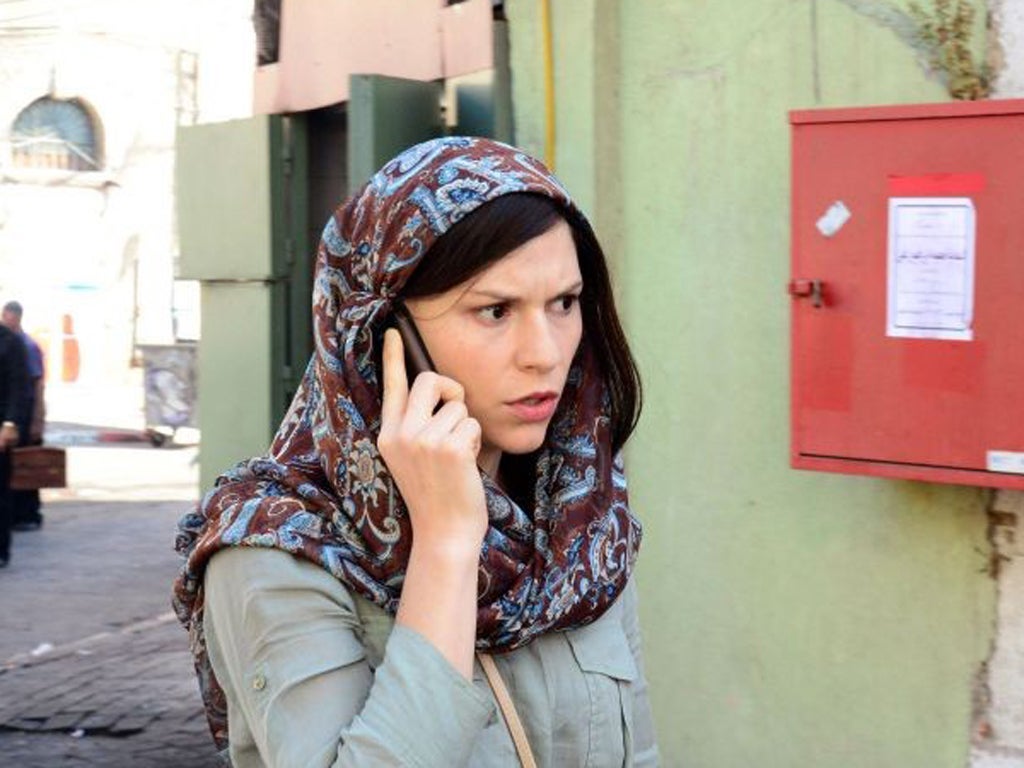Lebanese hit out over US drama Homeland's 'lies' in depiction of Beirut

The Lebanese have grown used to their capital city of Beirut being used as a synonym for destruction and violence. But a recent episode of the hit US drama Homeland was apparently one negative portrayal too far, and now the government is threatening to sue the makers of the show.
The country's tourism minister, Fady Abboud, hit out at the show for its “lies” following the airing of the latest episode of the Golden Globe-winning show, which featured Beirut as its backdrop, and is now planning to take legal action against its producer and director.
In the episode in question, the show's heroine - a CIA agent named Carrie, played by Claire Danes - dodges bullets and flees turban-wearing bad guys on rooftops across the city. Later, a band of heavily-armed fighters from the Shia militant party Hezbollah ride on the back of a pick-up truck to a terrorist meeting in Beirut's Hamra Street, roughing up bystanders as they go. Chaos ensues when an assassination attempt by the CIA goes wrong, and gunfire fills the air.
“This kind of film damages the image of Lebanon - it is not fair to us and it's not true, it is not portraying reality,” Mr Abboud told Executive magazine. “We want to take action, we want to write to the filmmakers and producers and demand an apology. And we are planning to raise a lawsuit against the director and the producer.” Mr Abboud said that the show, which is broadcast in 20 countries worldwide, could harm Lebanon's already beleaguered tourism industry.
“This series has a lot of viewers and if you are promoting Lebanon as a non-secure zone it will affect tourism. It will mean a lot of foreigners stay away if they are convinced by what they see,” he said.
He added: “Beirut is one of the most secure capitals in the world, more secure than London or New York.”
The minister also took exception to the decision by the show's producers to film the episode in Haifa, Israel - a country with which Lebanon is still technically at war.
“We would like to welcome the crews here to film in this city - we were offended by the fact that they filmed the thing in Israel and said it was Beirut,” he said.
The show's portrayal of Hamra Street, in particular, has irked many. The busy shopping street in the west of the city is perhaps Beirut's most famous thoroughfare, known for its bars and coffee shops- a stark contrast to the dilapidated alley in which terrorists battled it out in Homeland. Negative portrayals of Beirut in the media are nothing new. The city has struggled to shake off its image of a rubble-strewn battleground that it earned during Lebanon's long civil war, which destroyed much of the country between 1975 and 1990.
One former resident of the city grew so tired of the stream of articles and broadcasts in which the words “looks like Beirut” were used to describe scenes of destruction that he started a blog to document them.
Jad Aoun, the author of the blog, named 'Looks Like Beirut', called Homeland's portrayal of the city “a mash-up of every conceivable generalization of the Arab World.”
“Were the episodes taking place in the 70s and 80s, it could have passed for a slight resemblance of Beirut. Therein lies the problem: the civil war in Lebanon had such an impact on people's perception that Beirut is stuck in that perpetual state in people's minds.”
Showtime, the company behind the show, did not respond to a request for a comment.
The first series of Homeland, first broadcast in 2011, won a slew of awards, including six Primetime Emmys and a Golden Globe.
Join our commenting forum
Join thought-provoking conversations, follow other Independent readers and see their replies
Comments
Bookmark popover
Removed from bookmarks